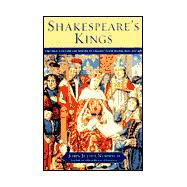Beginning with the newly authenticated "Edward III," and proceeding through "Richard II; Henry IV Parts I" and "II; " and "Henry V; Henry VI Parts I, II," and "III; " and finally "Richard III," Norwich holds the plays up to the light of history, answering questions such as: Who was the real Falstaff? How realistic is Shakespeare's depiction of Joan of Arc? At the same time, he provides a vibrant narrative of medieval life from 1337 to 1485, the era of the 100 Years War and the Wars of the Roses. It was a time of uncertainty and incessant warfare, a time during which the crown was constantly contested, alliances were made and broken, peasants and townsmen a






